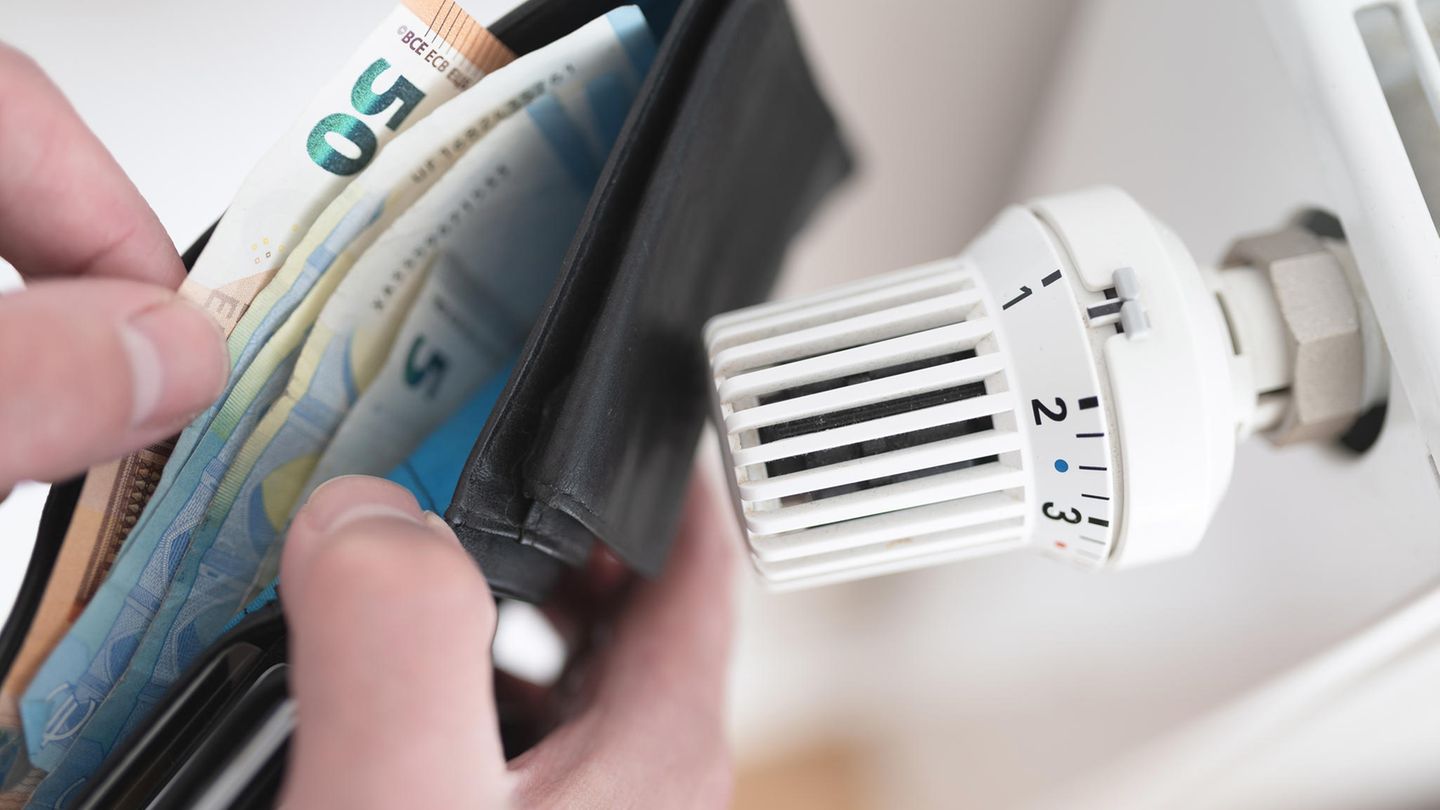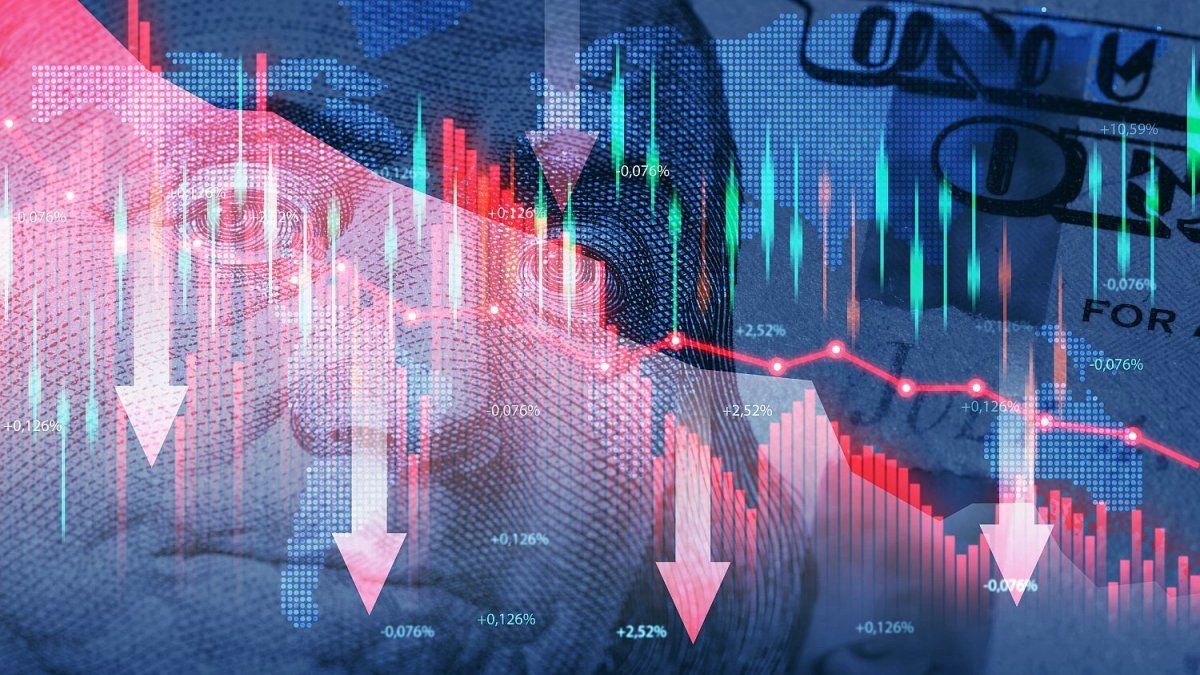The federal government’s budget agreement means additional burdens for many consumers in 2024. Example calculations show what extra costs private households will incur.
The tug of war is over, the 2024 budget is in place. For weeks after the ruling from Karlsruhe, the traffic light government made up of the SPD, Greens and FDP argued about the budget for next year. It has now agreed on important points – which, however, mean for consumers that from 2024 things will be more expensive than before.
Among other things, the coalition partners agreed on a higher price for the emissions of climate-damaging carbon dioxide. The CO2 price will be increased more than initially planned: from 30 euros per ton of CO2 to 45 instead of just 40 euros. This primarily has an impact on the costs of fuel, natural gas and heating oil. However, economic experts and associations criticize that the promised climate money as social compensation for increasing climate protection burdens is still not coming.
Capital and star calculate how much additional costs many people will have to expect in the future:
Heating with natural gas
Consumers will feel the increase in the CO2 price from 30 to 45 euros on their gas bills next year. According to the comparison portal Check24 Gas prices are expected to rise by an average of 17 percent. Accordingly, a model household of four with a gas consumption of 20,000 kilowatt hours must expect annual additional costs of 71 euros gross or 60 euros net.
In addition, the gas price brake will no longer apply on January 1, 2024, meaning that a four-person household with 20,000 kilowatt hours of gas consumption will have to pay 107 euros gross or 90 euros net more. With the price cap, the state covered part of the gas costs for consumers in 2023. This subsidy was intended to cushion the enormous price increases resulting from the war in Ukraine. The Federal Government However, the price brakes are not extended.
Added together, the additional costs due to the CO2 price and the abolition of the gas price cap amount to 178 euros for a four-person household. This amount will increase again because from March 2024 VAT will be charged at 19 percent instead of seven percent. The bottom line is that the additional costs for the model household amount to 211 euros.
The Green Party leader Ricarda Lang defends the rising heating costs. She told the television channels RTL and ntv that with the increase in the CO2 price we were returning to the path of the grand coalition of the SPD and CDU/CSU. The previous government had planned for the CO2 price to rise to 45 euros in 2024.
Although this would put a little more strain on citizens when it comes to refueling and heating, at the same time the traffic light government would have “also brought major relief, particularly through the abolition of the EEG levy”. This means that around 85 percent of the revenue from the CO2 price will flow back to citizens and companies next year, said the Green Party leader. In fact, the usage fees that customers pay for gas transit are falling. However, they only minimize the additional costs slightly.
Electricity
Also at Electricity consumers incur additional costs. The federal government actually wanted to spend 5.5 billion euros from the economic stabilization fund next year to offset rising network usage fees. This subsidy has now been canceled.
Every consumer pays the fees that the network operators charge for the transmission of electricity through their electricity bill. Next year, the transmission system operators will now charge around twice as much as originally planned: instead of just over 3 cents per kilowatt hour Well over 6 cents will be due, as the operators announced on Wednesday.
According to Check24, a model household of four with 5,000 kilowatt hours of electricity consumption will have to expect an additional charge of more than 100 euros for network usage fees on their electricity bill in 2024. Additional costs of 46 euros would have been incurred for the example family even with the state subsidy, but now there would be another 56 euros on top, calculates Check24. The comparison portal assumes network usage fees of 6.68 cents instead of the actually planned 3.19 cents.
Apart from the change in network fees, the federal government had previously announced an early end to the electricity price cap due to the budget crisis. Instead of the end of March 2024, this will expire at the turn of the year. This means that consumers incur additional costs on expensive tariffs – but in most cases these are manageable. According to Verivox, even customers with basic services that tend to be expensive will cost an average of 5 euros per year if the price brake is removed early.
Consumer advocates criticize the fact that the decisions will mean that private households will have to pay more for electricity in 2024, while the reduced industrial electricity price planned by the government will still come. But the truth is that many households would still have significant savings potential if they were to take action themselves and switch to a cheaper tariff.
Refuel
From January 1, 2024, anyone who fills up with petrol will have to pay 4.3 cents more per liter; for diesel it is 4.7 cents. Because of the higher CO2 price, there will now be a further 1.4 cents per liter of petrol and 1.6 cents per liter of diesel on top of the increase that was already decided for next year. The ADAC calculated this based on the emission values. For example, one liter of gasoline produces 2.4 kilos of CO2 and one liter of diesel produces 2.65 kilos.
Chancellor Olaf Scholz (SPD) spoke about the fact that the price of gasoline “There are very low additional burdens. Anyone who relies on the car and fills up more often still has to expect additional costs. The ADAC provides the following example calculation:
Yesterday the daily average price of the Super E10 was 1.711 euros, plus the 4.3 cents that would be 1.754 euros. If you take a tank size of 50 liters as a basis, a tank filling currently costs 85.55 euros, from January it would be 87.70 on this basis. Yesterday’s average daily price for diesel was 1.688 euros, so a 50-liter tank of fuel cost 84.40 euros. Plus the 4.7 cents per liter of diesel, the price would be 86.75 euros.
In addition to taxes, the dollar exchange rate and economic expectations primarily influence the price of crude oil and thus fuel. In addition, prices at gas stations fluctuate greatly throughout the day. According to an analysis by the ADAC, it is often most expensive in the morning and rather cheaper in the evening. By choosing the right time, you can save up to 9 cents per liter, says the ADAC.
The state’s commuter allowance, which was slightly increased last year, provides relief for the additional costs caused by the higher CO2 prices. Consumers can deduct costs for the commute from their taxes: for the first 20 kilometers it is 30 cents per kilometer and from the 21st kilometer onwards 38 cents per kilometer.
The ADAC is nevertheless calling for relief, especially for consumers with low incomes, in the form of compensation during this legislative period.
VAT
As already mentioned, the VAT rate on natural gas will rise from seven percent to 19 percent from March 2024. From January 2024, higher taxes will be due again in the catering industry.
The VAT on food for consumption on site will also rise again to 19 percent. If restaurateurs pass this higher rate on to their guests, dining out becomes more expensive for consumers: everyone who wants to eat in a restaurant will then have to pay around 2 to 3 euros more per meal – a total of 8 for a family of four up to 12 euros more. If restaurateurs do not pass on the higher VAT on a one-to-one basis, they will earn less per dish from January 1st than before. The industry is therefore already fearing losses in sales and job losses.
The VAT rate in the catering industry was only seven percent for food in the past three years in order to mitigate the consequences of the corona pandemic and later the high energy costs. The lower tax rate of seven percent continues to apply to food that is picked up or delivered.
Tax relief
Various tax reliefs for employees will come into force in 2024. Among other things, the basic allowance, up to which no taxes have to be paid, increases from 10,908 euros to 11,604 euros. The child allowance increases from 3,012 to 3,192 euros per parent and the exemption limit for the solidarity surcharge for top earners increases. According to calculations by financial scientist Frank Hechtner from the University of Erlangen-Nuremberg, employees will have more money at their disposal, even if social security contributions rise.
For example, a childless single with a gross monthly income of 4,000 euros will have 225 euros more available per year than in 2023. A family with two children in which both parents earn 4,000 euros will have their burden reduced by 620 euros. If your income is very high, the relief amount can rise to 1,600 euros.
Chancellor Olaf Scholz (SPD) also refers to exactly these reliefs: The agreed wage and income tax reliefs amounting to 15 billion euros are still planned. “It stays with them. And that affects small and medium incomes,” he said on the ARD program “Show Color”. Finance Minister Christian Lindner (FDP) emphasized in the “ZDF-Spezial” that “there will be clearly noticeable relief for the broad middle of the population from January 1st next year”. Economics Minister Habeck said in the “Heute Journal”: “Not only is everything a burden, but we are also defending the relief.”
Source: Stern




